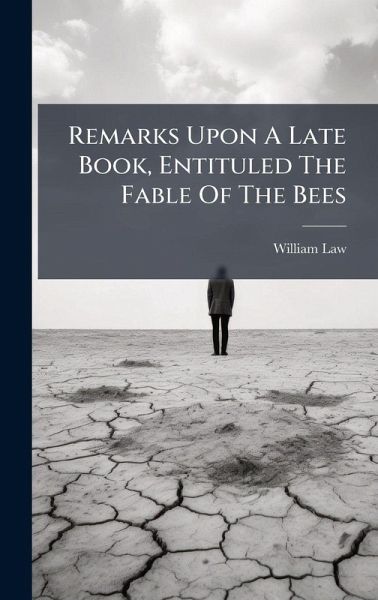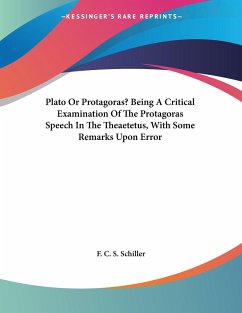
Remarks Upon A Late Book, Entituled The Fable Of The Bees
Versandkostenfrei!
Versandfertig in über 4 Wochen
29,99 €
inkl. MwSt.
Weitere Ausgaben:

PAYBACK Punkte
15 °P sammeln!
Remarks Upon A Late Book, Entituled The Fable Of The Bees offers a detailed critique of Bernard Mandeville's controversial work, "The Fable of the Bees: Or, Private Vices, Publick Benefits." William Law meticulously dissects Mandeville's arguments, challenging the notion that societal prosperity can arise from individual vices. Law defends traditional moral values and argues for the importance of virtue in maintaining a healthy and just society. This response provides valuable insight into the ethical and philosophical debates of the 18th century, highlighting the tensions between individual s...
Remarks Upon A Late Book, Entituled The Fable Of The Bees offers a detailed critique of Bernard Mandeville's controversial work, "The Fable of the Bees: Or, Private Vices, Publick Benefits." William Law meticulously dissects Mandeville's arguments, challenging the notion that societal prosperity can arise from individual vices. Law defends traditional moral values and argues for the importance of virtue in maintaining a healthy and just society. This response provides valuable insight into the ethical and philosophical debates of the 18th century, highlighting the tensions between individual self-interest and the common good. Readers interested in the history of ethical thought and the reception of Mandeville's ideas will find Law's 'Remarks' an engaging and intellectually stimulating read. This work has been selected by scholars as being culturally important, and is part of the knowledge base of civilization as we know it. This work was reproduced from the original artifact, and remains as true to the original work as possible. Therefore, you will see the original copyright references, library stamps (as most of these works have been housed in our most important libraries around the world), and other notations in the work. This work is in the public domain in the United States of America, and possibly other nations. Within the United States, you may freely copy and distribute this work, as no entity (individual or corporate) has a copyright on the body of the work. As a reproduction of a historical artifact, this work may contain missing or blurred pages, poor pictures, errant marks, etc. Scholars believe, and we concur, that this work is important enough to be preserved, reproduced, and made generally available to the public. We appreciate your support of the preservation process, and thank you for being an important part of keeping this knowledge alive and relevant.












